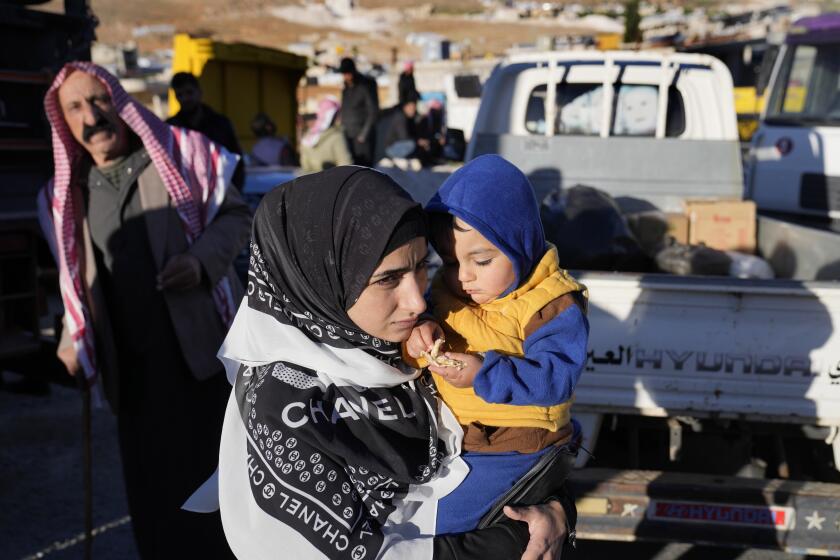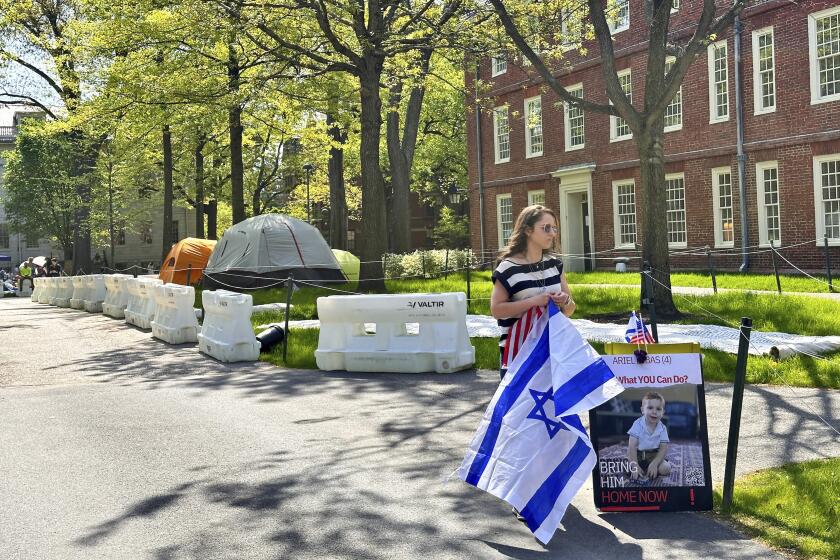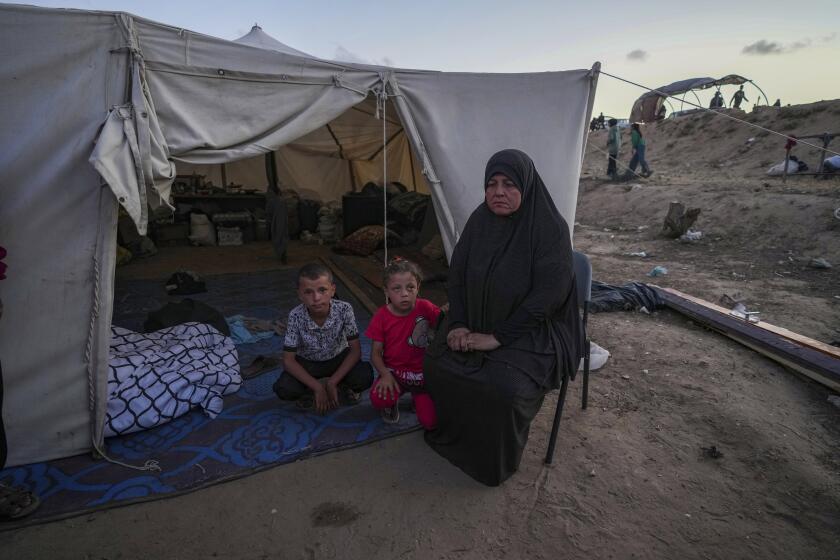Word Perspective / ASIA : India Chafes at Exclusivity of 5-Member Nuclear Club
In the exclusive circle of states that have tested nuclear bombs, the record shows 1,054 American blasts, compared to a single “peaceful” test by India 21 years ago.
Some Indians now want another multi-kiloton detonation by their country to even the score a little.
“A new test may be the only way to tell the U.S. where it gets off,” well-known columnist Inder Malhotra fumed this week.
The roots of India’s newfound peevishness lie in the proposed global Comprehensive Test Ban Treaty and a push by the Clinton administration to get it approved by this spring.
John Holum, director of the U.S. Arms Control and Disarmament Agency, has predicted that the pact “will make us grateful that we locked all nations into place on the nuclear learning curve.”
For two years, India co-sponsored the test-ban treaty along with the United States. But no longer.
This autumn, at the Geneva Disarmament Conference, the government of Prime Minister P. V. Narasimha Rao reverted to India’s old tack. It now insists that the five acknowledged nuclear “haves”--the United States, Britain, France, Russia and China--agree to a time-bound elimination of their nuclear arsenals as a precondition to signature of a total test ban.
“If such a commitment is not forthcoming,” Rao has said, “what are we to make of a status in which a few hold on to their awesome arsenals, kept trim by sophisticated computer simulation techniques, while they want all others to watch on with empty hands?”
*
Indian officials fear that the test-ban accord, along with the indefinite extension of the Nuclear Non-Proliferation Treaty orchestrated by the United States last year, would sanction a perpetual nuclear monopoly by the permanent members of the U.N. Security Council.
“We Indians would restrict any move to restrict the nuclear club to five,” said Savita Pande of the Institute for Defense Studies and Analyses, a New Delhi think tank.
Evan Madeiros, senior analyst at the Washington-based Arms Control Assn., acknowledged that “there’s no way to deny that there’s a real discriminatory aspect to nonproliferation. But the bottom line is: Is it in our [the United States’] national interest to allow more states to have nuclear weapons or to build better ones?”
The squabble around the test-ban accord is only one area where differences between India and the United States have sharpened of late.
*
As nationwide elections approach, Rao’s Congress (I) Party may even be tempted to engage in a fresh nuclear test because opinion polls show that is what the public wants.
On May 18, 1974, at the desert test site of Pokran in western Rajasthan state, India set off a 12-kiloton bomb in its sole nuclear explosion to date. But a recent poll found that 62% of Indians would approve of another explosion were it necessary “to develop [India’s] nuclear-weapon capability.”
India has always claimed that it never “weaponized” results of the 1974 test. But U.S. experts estimate the country has produced 30 to 60 plutonium bombs, Madeiros said.
Last month, a U.S. newspaper reported that there were suspicions in Washington that India was getting ready for new testing. Spy satellites, it was said, had recorded renewed scientific and technical activity at Pokran.
Foreign Affairs Minister Pranab Mukherjee called that report “speculative and baseless,” and it kindled a surfeit of anti-American comment in the Indian media, which accused Washington to trying to bully India.
In weighing whether to test, one major restraining factor for Rao’s government is the uncertain reaction of Pakistan.
India’s unfriendly neighbor has a nuclear weapons program of its own. And in the views of experts such as Pande, the ambiguity served by an absence of testing is no less worrisome for Pakistan’s leaders than a second explosion at Pokran.
“If you can serve the purpose of having a credible nuclear deterrent by doing nothing, why test?” she asked.
More to Read
Start your day right
Sign up for Essential California for news, features and recommendations from the L.A. Times and beyond in your inbox six days a week.
You may occasionally receive promotional content from the Los Angeles Times.





